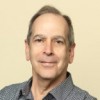We asked rabbis, ‘What are Jews most hungry to hear this new year?’
It’s been a year.
The war on Hamas rages on. Forty-eight hostages, alive and dead, remain in captivity. Israel scored notable victories in its campaign against belligerent neighbors, but also was scorned at home for a war seemingly without end and ostracized abroad for the humanitarian crisis in Gaza.
On the home front, a new presidency has meant an hourly stream of polarizing headlines and norm-shattering policies. Jews have found themselves at the center of the president’s efforts to remake higher education, and of a New York City mayoral race where the frontrunner holds positions that many pro-Israel voters think put them in danger.
Rosh Hashanah arrives on the evening of Sept. 23, exactly two weeks before the second anniversary of the Oct. 7 attacks. To make sense of yet another unthinkably difficult year spent in the shadow of war and political turmoil, we asked rabbis what messages they hoped to share over the High Holidays. The question we put to them was this: What are Jews hungry to hear this year?
Few spoke in specific terms about the crises at hand, but if there was a common theme to their responses it was this: hope. Many said that what Jews need most is reassurance that they might maintain hope in a time that can feel profoundly hopeless.
Many thanks to Rabbis Scott N. Bolton, Jeffrey S. Fox, Nicole Guzik, Moshe Hauer, Ammiel Hirsch, Rick Jacobs, Miriam Jerris, Natan Levy, Avi Killip, Julia Knobloch, Anchelle Perl, Jason Rubenstein, Michael Schudrich, Chaim Steinmetz, Deborah Waxman, David Wolpe, Shmuly Yanklowitz and Wendy Zierler; Rebbetzin Avital Chizhik-Goldschmidt, Rabba Rachel Kohl Finegold and Ana Levy-Lyons.
I cannot think of a year when our community — and each of us individually — has needed Rosh Hashanah more than we do this year.
We are buffeted by political conflict and technological upheaval; concerned by declines of literacy, happiness, birth rates, and life expectancies; and rightly fearful of rising violence against the Jewish community. From the drumbeat of stress-raising headlines notifications on our phones, to longer thought-pieces rightly alarmed about the state and trajectory of our world — we are all tempted by resignation to a coming year of polarization, tumult and fear.
Rosh Hashanah is a protest against precisely this kind of pessimistically confident prognostication. Together we celebrate the rebirth of the world — hayom harat olam — in the image of not just any birth (each of which is miraculous) but in the image of an elderly Sarah miraculously giving birth to Isaac at the age of ninety, after suffering through 70 long years of infertility. It was in the month of Tishrei, our Rabbis teach us, that Sarah learned that she would miraculously have a son — and Rosh Hashanah’s liturgy is designed around reading and re-living this story. (The Akeidah, Abraham’s near-sacrifice of Isaac, is read on the second day because it is the story that immediately follows Isaac’s birth. But it is Sarah’s previously unimaginable motherhood that was classically, and always should be, seen as the beating heart of Rosh Hashanah.)
We, Sarah’s descendants, are called to remember that we can follow in her path. No matter how great our certainty in the sameness or difficulty or even hopelessness of the coming year, no matter how convincing the evidence or how irrefutable the trends, we can yet be surprised by eruptions of joy that we could neither have predicted nor imagined. May each of us, and all of us together, open our hearts and minds to the eternal possibility of new hopes and new possibilities — ones that, when we see them, we realize that we had given up on.
Rabbi Jason Rubenstein is executive director of Harvard Hillel.
I think there’s one question that people have now, which is just this ennui around this moment in time. People are not hopeful. The world, America specifically, seems to be spiraling towards this ever-more-violent chaos, and people are struggling. They’re struggling from the news. They’re struggling from living online. We live in a very strange world, and I think coming to shul, the messages people are looking for are messages that speak to that struggle and offer clarity.
Avital Chizhik-Goldschmidt is the co-founder and rebbetzin of The Altneu synagogue on Manhattan’s Upper East Side.
We are charged with contradictory and even paradoxical missions: to comfort and provoke. To warn and reassure. To ask people to turn away from screens and public affairs and attend to their souls, and at the same time to mobilize for the solidarity of their people. No single emphasis will suffice. If there is to be a theme to all the discordant music, perhaps it is to listen; there are harmonies as well as noise. We would be better, all of us, if we would shema — hear, listen, O Israel.
David Wolpe is Max Webb Emeritus Rabbi at Sinai Temple in Los Angeles and scholar in residence at the Maimonides Fund.
(JTA illustration by Grace Yagel)
I believe the most important thing for Jews to hear this season is that the most oft-repeated mitzvah in the Torah, by far — there really is no contest here — is the injunction to deal kindly with the “ger” (the stranger), because we were gerim (strangers) in Egypt. According to Bava Metzia 59b, in a baraita quoted in the name of Rabbi Eliezer the Great, the injunction against oppressing the stranger occurs 36 times in the Bible, and some even say, 46 times.
The recent appalling rise of antisemitism has once again placed American and world Jewry in the position of the abused stranger. At the same time, in this country antisemitism has provided a disturbing pretext to remove funding from needed areas of medical research and science. We have good reason to be dismayed by antisemitism on the left, but that does not justify turning our backs on basic Jewish principles of caring for the vulnerable, the strangers, the widow, the orphan, the sick. And while we may be outraged by the way in which Zionism has been turned into an antisemitic slur, rendering strange and intolerable our precious national, Zionist pride, that doesn’t absolve the world Jewish community and current Israeli government from doing everything it possible can do to feed the hungry and prevent violence against innocents.
On the most basic level, there’s a pragmatic side to the Bible’s obsessive injunction not to mistreat the ger: God wants us to engage in productive and fair behavior with those who do not belong to our immediate circle so as not to live in a state of constant war. Which is the other reason why this message is so important for us: the notion that more than anything else, we ought to be trying to pursue amity with our neighbors — not war, not strife, not knock-out debate punches. In the famous words of Psalm 34:15: Shun evil and do good, seek peace and pursue it.
Rabbi Wendy Zierler is Sigmund Falk Professor, Modern Jewish Literature and Feminist Studies, at Hebrew Union College in New York, and author of the new book, “Going Out with Knots: My Two Kaddish Years with Hebrew Poetry.”
The High Holidays are a time when we gather to strengthen our Jewish identity and our shared bond. My message is not about politics but about giving Jews the courage and inspiration to stand strong and united, no matter what challenges we face. The comfort comes from knowing that as a people, we are never alone — we have each other, our tradition, and our faith.
The synagogue, especially during the High Holidays, is not the place to rehash the politics and the opinions that we hear through the nose all year round. This sacred time is about rising above political divides and remembering that what unites us as Jews is far greater than what divides us. My goal is not to validate one side or another, but to remind us of our shared spiritual mission and responsibility.
In my sermons, the focus is not on domestic politics or partisan debates. We get enough of that everywhere else. The High Holidays are about lifting our eyes and hearts to something higher — to G-d, to our tradition, and to our collective future. It’s about strengthening our unity, deepening our connection to Torah and mitzvot, and ensuring the continuity of Jewish life.
Anchelle Perl is the rabbi of Chabad of Mineola, New York.
What is most important for Jews to hear right now is that a Jew should never feel alone. In reaction to real antisemitism, and the anti-Israel sentiment which is far more widespread now than ever before in our lifetimes, one can feel a sense of alienation and loneliness. We must let our communities know that in no uncertain terms we are together. I........






















 Toi Staff
Toi Staff Sabine Sterk
Sabine Sterk Penny S. Tee
Penny S. Tee Gideon Levy
Gideon Levy Waka Ikeda
Waka Ikeda Mark Travers Ph.d
Mark Travers Ph.d Tarik Cyril Amar
Tarik Cyril Amar Grant Arthur Gochin
Grant Arthur Gochin Chester H. Sunde
Chester H. Sunde
